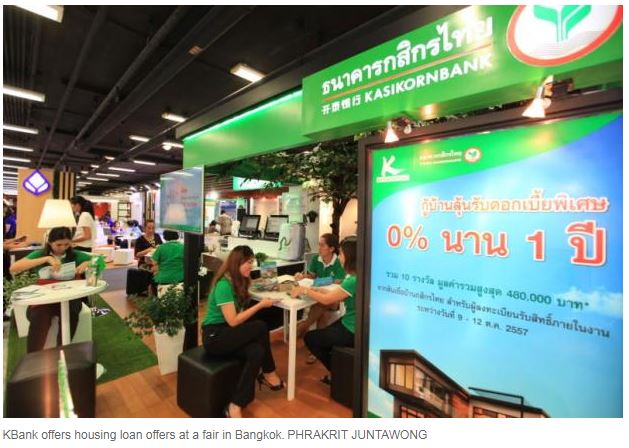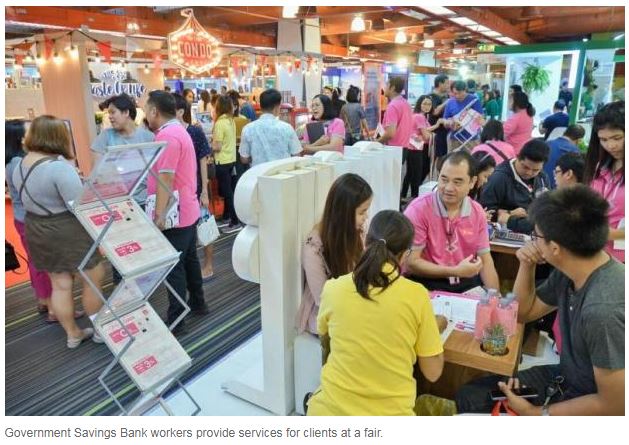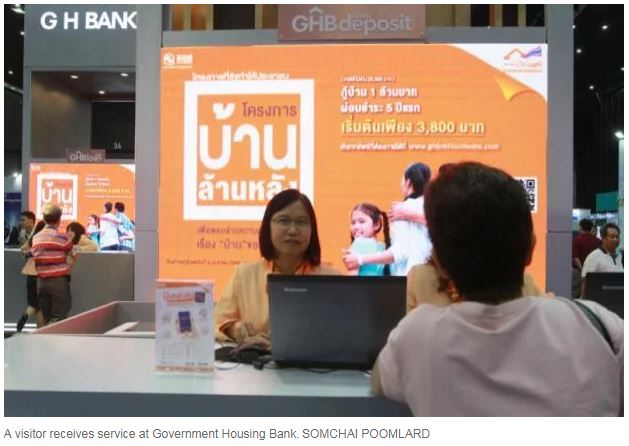Thailand: New rules, new paradigm
Property developers are hastily preparing strategies to cope with the Bank of Thailand’s new requirements on mortgage lending, as the measures will have an impact on some homebuyer segments next year.
Peerapong Jaroon-ek, chief executive of SET-listed developer Origin Property Plc, said the new requirements will directly affect the speculation market and buyers of second and subsequent homes.
“Some 70-80% of our customers buying a unit priced at 10 million baht and above used cash,” he said. “The rest borrowed only 50-60% of the credit line. This segment is not worried about the rule changes.”
The impact from the new lending rules will be significant for customers in the mid-priced segment, with unit prices at 3-4 million baht, or 90,000-110,000 baht per square metre.
“These buyers borrowed to buy first homes in the Bangkok outskirts and are looking for a condo unit in the inner city to stay during weekdays near their workplace,” Mr Peerapong said. “They will not buy a second home during the first three years [in which they are paying for a mortgage for the first home].”
 Fresh demand
Fresh demand
Origin plans to shift to fresh demand from first-time homebuyers. It will resume development of products for first-time homebuyers after freezing them a few years ago to focus on the middle to high-end segment.
The company will launch condo projects near new mass transit stations or extension lines because land costs remain feasible to develop condos there, with units priced around 2 million baht, a level deemed affordable for first-time homebuyers.
“At this price, first-time homebuyers who have been working for less than two years can easily decide whether to buy a unit compared with a car purchase,” Mr Peerapong said. “We will grab them from the car market.”
Potential locations include the Saphan Mai area, where an extension of the Green Line will pass, while Rangsit is scheduled to see the Red Line run past. Bang Na is another option.
These three locations have strong residential demand. The first two are in northern Bangkok, where demand is from people from the north and northeastern regions.
Bang Na is in eastern Bangkok, on the way to the planned Eastern Economic Corridor, where most buyers are those working in the industrial sector, Mr Peerapong said.
Products for first-time homebuyers will also include townhouses and duplex houses priced at 2 million baht a unit. One of the new projects being launched next year for this segment is behind Megabangna mall on Bang Na-Trat Road, Mr Peerapong said.
“The requirement for higher down payments will not affect the sales backlog from the third quarter this year, as these sales were signed before Oct 15, 2018,” he said. “Developers that have a large sales backlog will record more transfers.”
But new condo sales after Oct 15, or low-rise supply (single houses, duplex houses and townhouses) scheduled to transfer after April 1, 2019, will be more difficult to close as some buyers are hit by the new lending rules.
Origin plans to use campaigns like cooperation with banks to offer 0% interest for 10-month instalments to buyers who use a credit card to pay for an amount that exceeds the credit lines approved by financial institutions for mortgages.
 Shift to high-rise
Shift to high-rise
SET-listed developer Pruksa Holding Plc is considering the development of off-plan houses and decreasing the number of prebuilt or ready-to-transfer houses in its portfolio to give homebuyers more time to pull together down payments.
“Our condo development will shift to high-rise projects, as they have a longer construction time than low-rise,” said Supattra Paopiamsap, deputy group chief executive for Pruksa. “This can extend the down payment period for customers.”
Saenphin Sukhee, executive managing director of SET-listed Golden Land Property Development Plc, said the down payment system will resume in the low-rise housing segment after it vanished when prebuilt houses became popular.
“We support [the new lending rules] because they are for the sustainability of the property market,” he said. “It can build consumer discipline. Consumers will buy units that fit their purchasing power, make a good plan and save before buying.”
Mr Saenphin said the new lending rules should lower the cancellation rate and banks’ mortgage rejection rate because they encourage real demand.
Transfer boom
Apa Ataboonwongse, president of the Thai Condominium Association, said sales of condo units at completed projects or condo units ready to transfer will boom from November 2018 to the end of March 2019, before the new measures are implemented.
“Condo transfers will soar during this period, then demand will shrink after that as future demand is absorbed,” she said. “Despite growth in the first quarter, the condo market the rest of next year will be either steady or stagnant.”
To help future customers who may be affected by the new lending rules, she suggested developers extend the down payment period and ask customers whether they have to meet the new conditions before allowing them to book a unit.
“The new requirements will affect some condo buyers, as the measures cover second mortgages,” Ms Apa said. “Some buyers are investors shifting from volatile investments like stocks or gold to a condo. The new rules will slow down condo investment.”
Compared with stocks and gold, investors usually keep condo investments longer, she said. Condo investment slows down quick market entrances and exits.
Condo investment buyers, including those buying a condo as a second home, account for 25% of total condo demand each year, Ms Apa said.
Atip Bijanonda, president of the Housing Business Association, said the new requirements on mortgage lending, which the central bank revised after receiving comments from developers, should strafe all segments.
“Low-rise homes are included in the new requirements, though this segment has no speculators,” he said. “Those who purchase a unit using a second or subsequent mortgage will have an additional down payment burden, rising to 10% from 5%.”
Mr Atip said the construction period for a low-rise unit takes six to seven months, shorter than for a condo, which takes up to two years.
“The new requirements will definitely affect the property market, but we cannot estimate the impact because there are other factors at play such as the economy next year, interest rate trends and the mortgage rejection rate,” he said.
 Balance the market
Balance the market
Vittakarn Chandavimol, chief of corporate strategy and creation for SET-listed developer AP Thailand Plc, said the new mortgage lending requirements are in line with the market.
“The new rules do not cover first-time homebuyers; most of them buy low-rise houses,” he said. “The new rules will make supply and demand in the condo market more balanced.”
Developers should be more cautious in launching new condo projects next year, as the new lending rules will cool down artificial demand, Mr Vittakarn said.
“Homebuyers will be more interested in condos because there is a longer time to muster the down payment than for low-rise houses,” he said.
Phattarachai Taweewong, senior manager at property consultant Colliers International Thailand’s research department, said the new mortgage requirements will be good for the sector because they will promote good conduct.
“The property sector has four to five months to adjust,” he said. “The new requirements will not take effect for sales and purchasing agreements signed before Oct 15, 2018, a few weeks after the new requirements were proposed.”
Source: https://www.bangkokpost.com/business/news/1586566/new-rules-new-paradigm


 Thailand
Thailand




